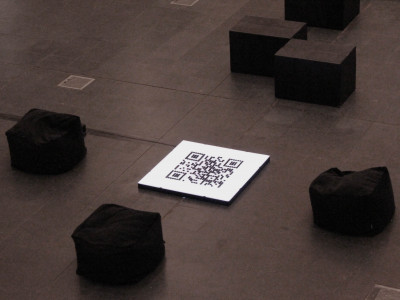
Materials
Moving boxes, paint, plexiglas, led, pawns Go Game.
Size
1 m x 24 m x 0,46 m
Notes
Sound art Installation based on QR Code technology.
We are beings made blind and deaf.
-
This work employs the technological interaction of the recently widespread QR code, and combines it with the Asian game Go. The Go Game is considered one of the oldest still practiced games, it implies the violence of war and the conquest of territories while still being very meditation-driven. The QR code functions as a means of interaction with the audience. It provides them with a sense of autonomy and time management, which will in turn guide them towards an immersive sound experience. "The Blind Age" aims to create a moment of sharing while, simultaneously, producing a space of intimacy with oneself through a journey inside virtual soundscapes hosted online. The work does not exist in a physical sense, thus questioning the concept of "space" and "identity" in the wake of digital progress. It echoes in an ideal utopian landscape, where you can traverse land and water unimpeded by limits or boundaries.
-
The sound flow is structured as an imaginary "sound-walk" which starts from silence and then explores how nature shifts as it approaches the audience. The QR code, which is made up of Go pawns of the same color, links to the composition. Perfectly embedded in this code you will find a word, spelled in the international Braille language. It means "insieme", or "together" in Italian. It is placed in the central nave of the church, as if the word became an extension of the code itself. The latter is made from recycled black cardboard boxes, their origins and stories left unknown to the viewer. However, if you pay close attention, these boxes will show close-to-imperceptible irregularities and minuscule flaws within its components…
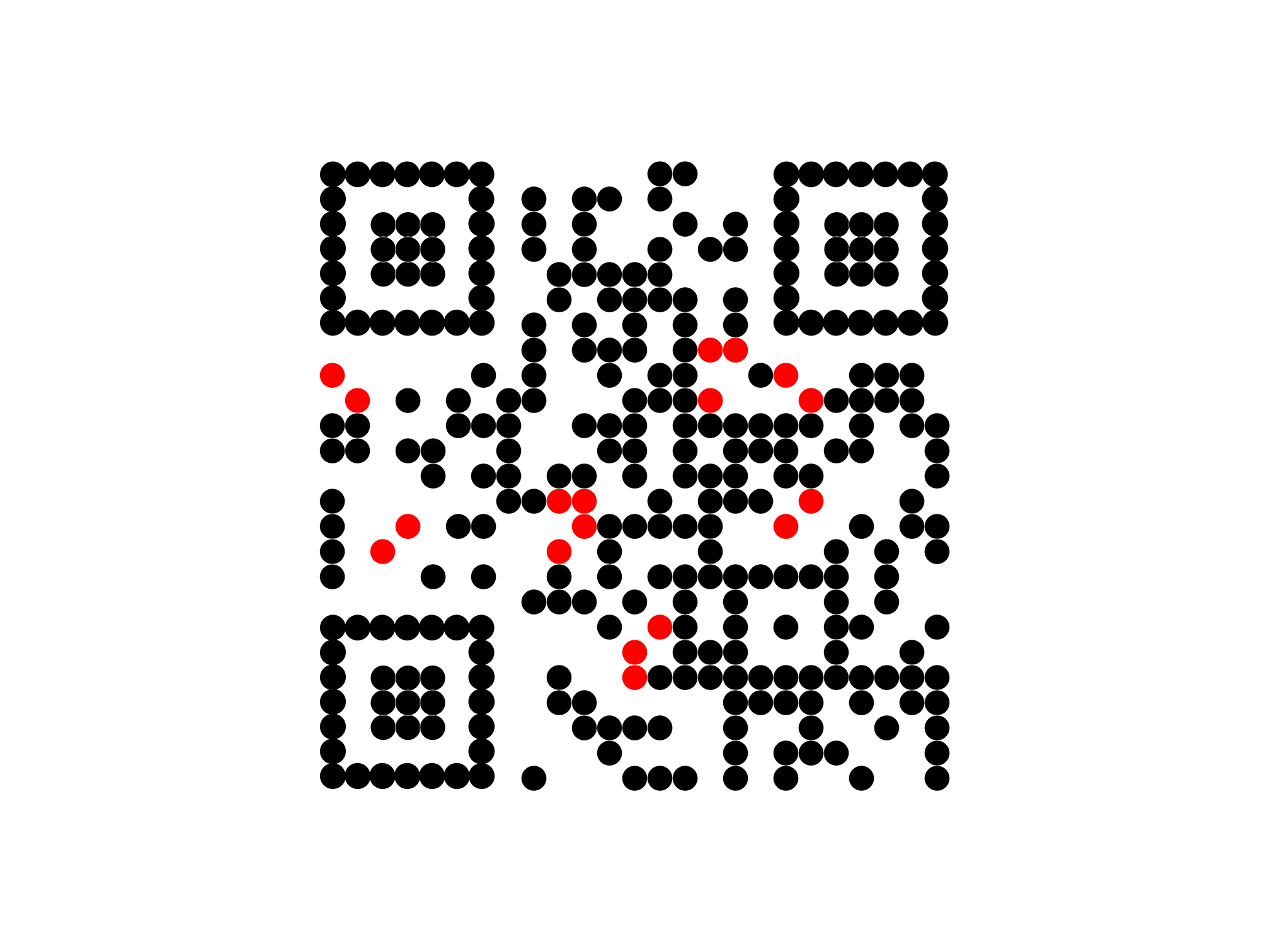
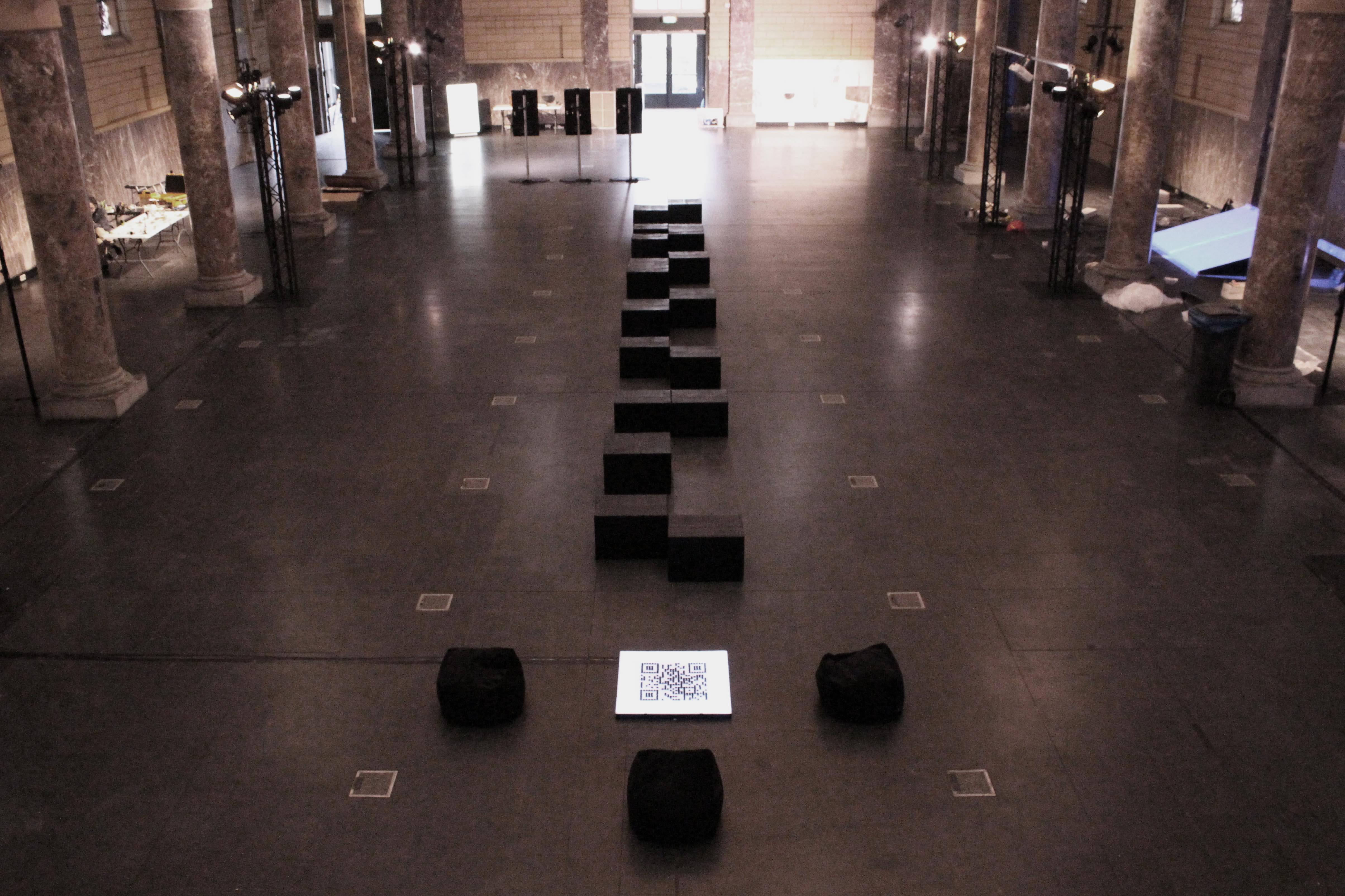
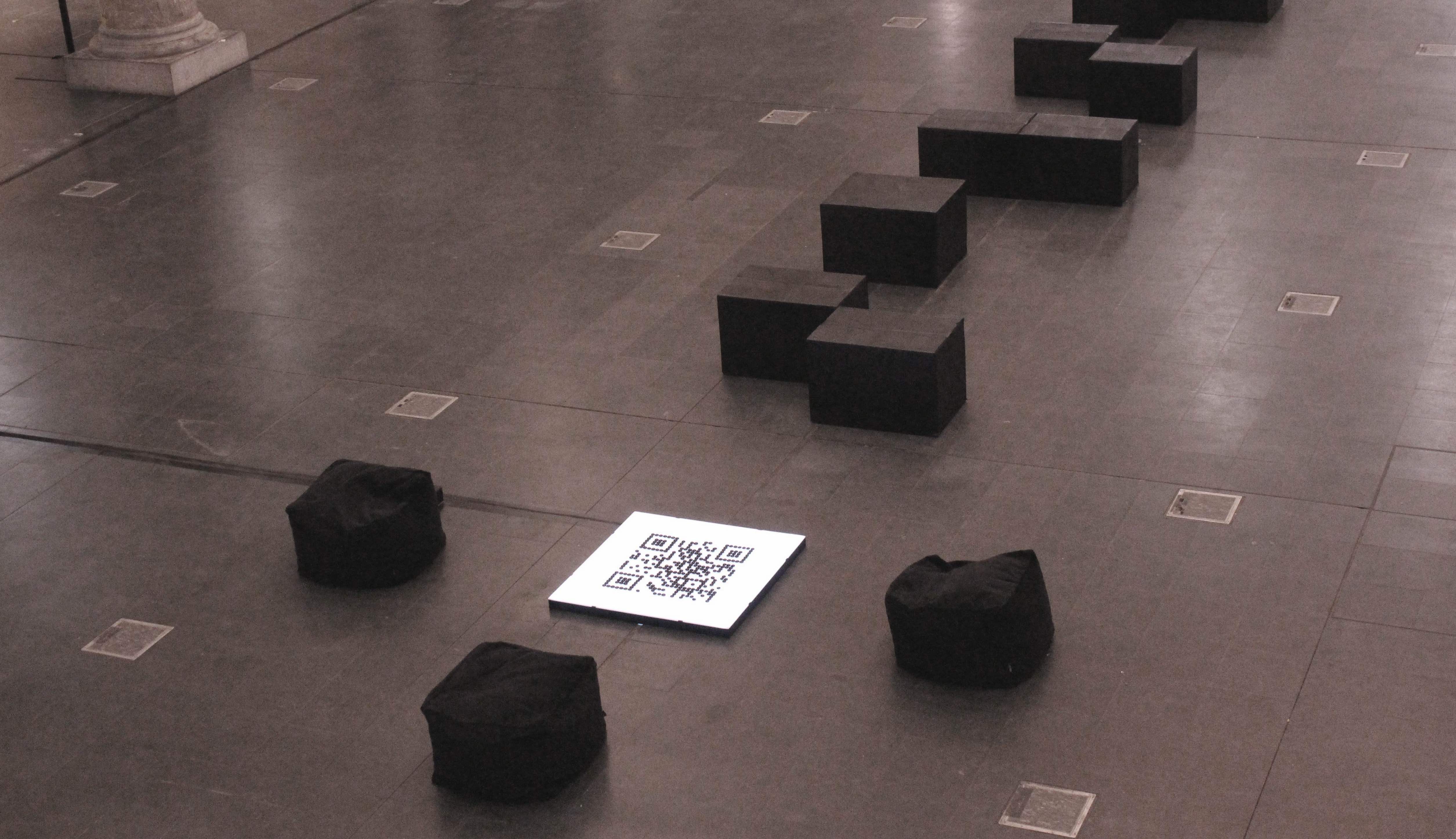
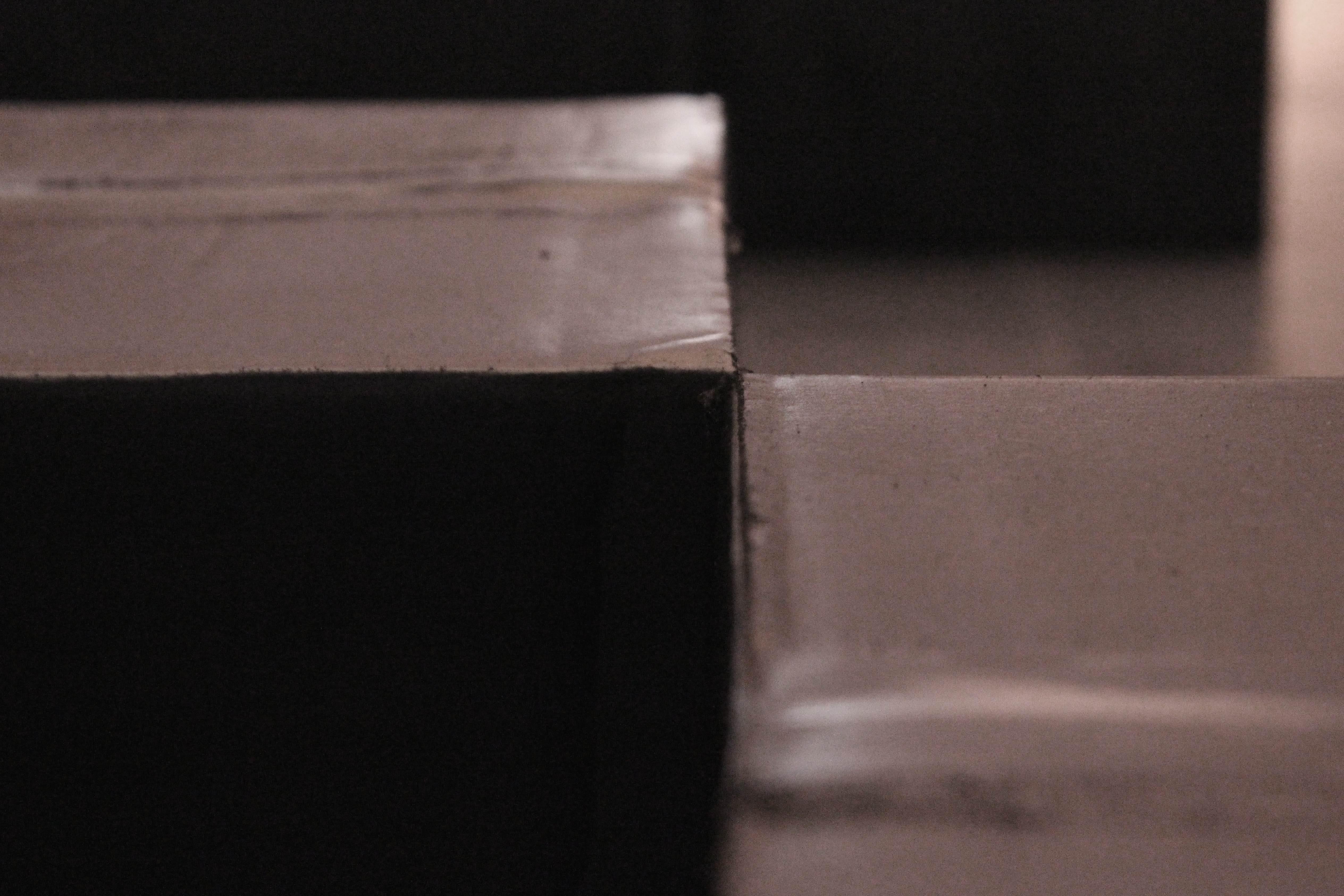
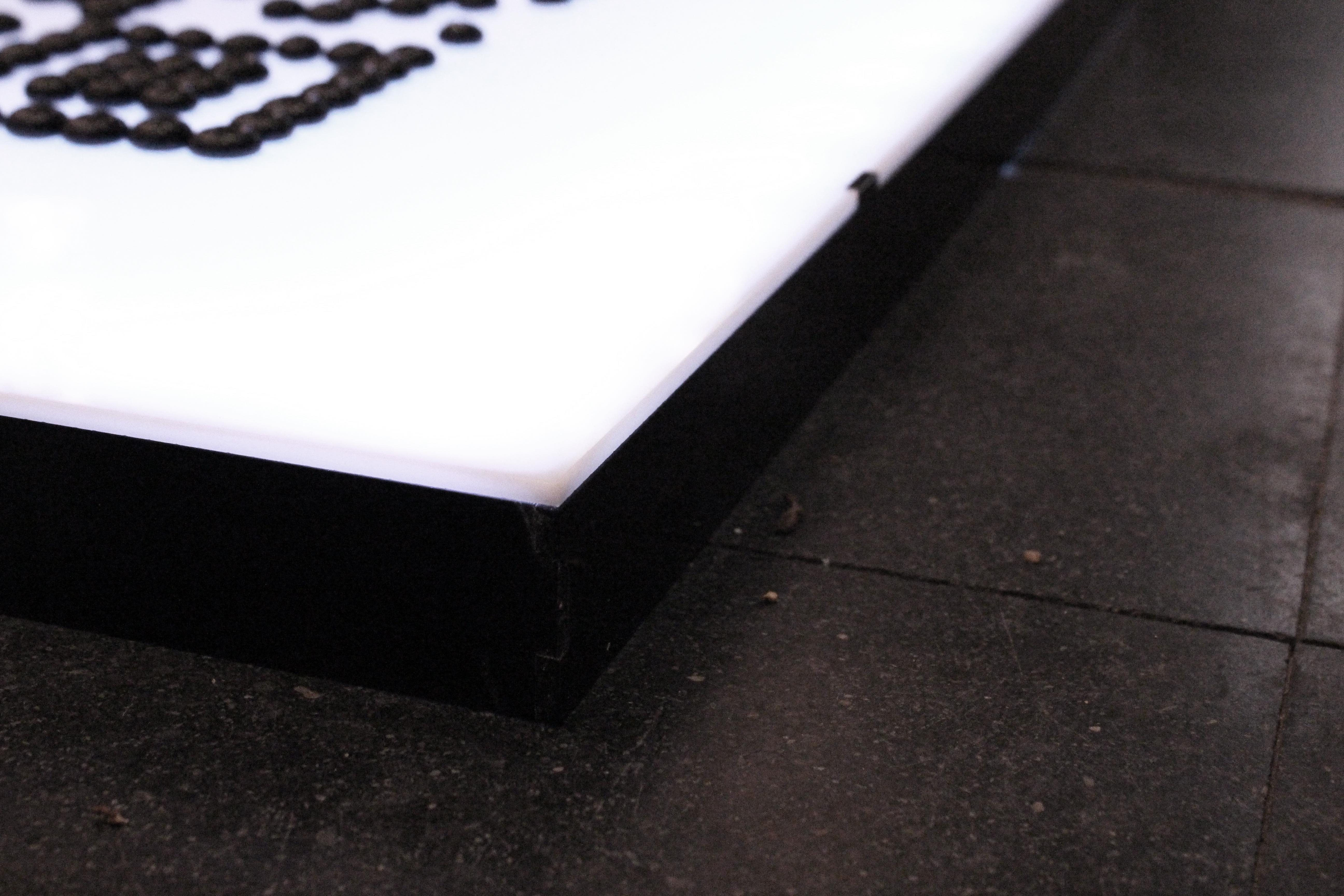
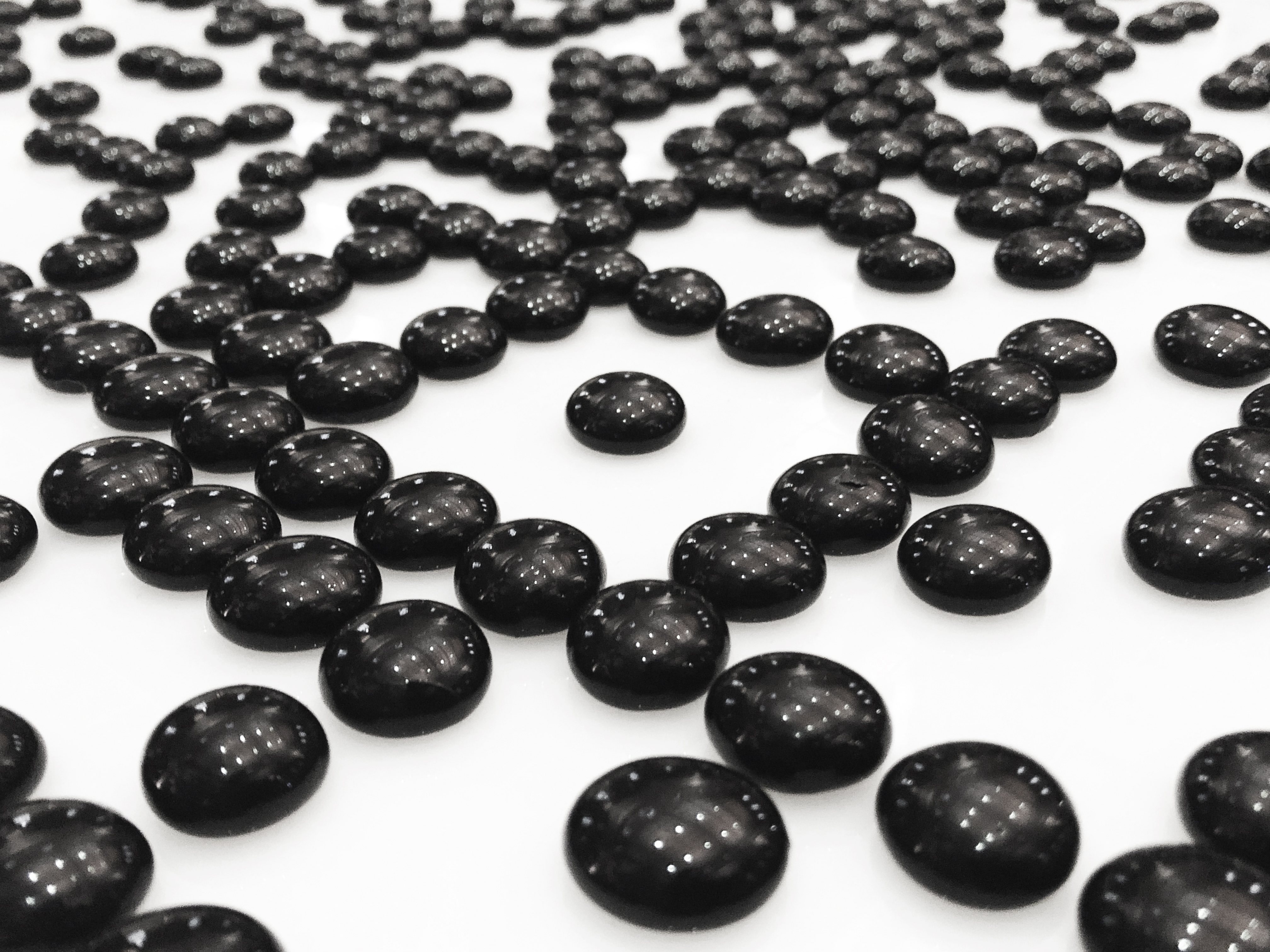
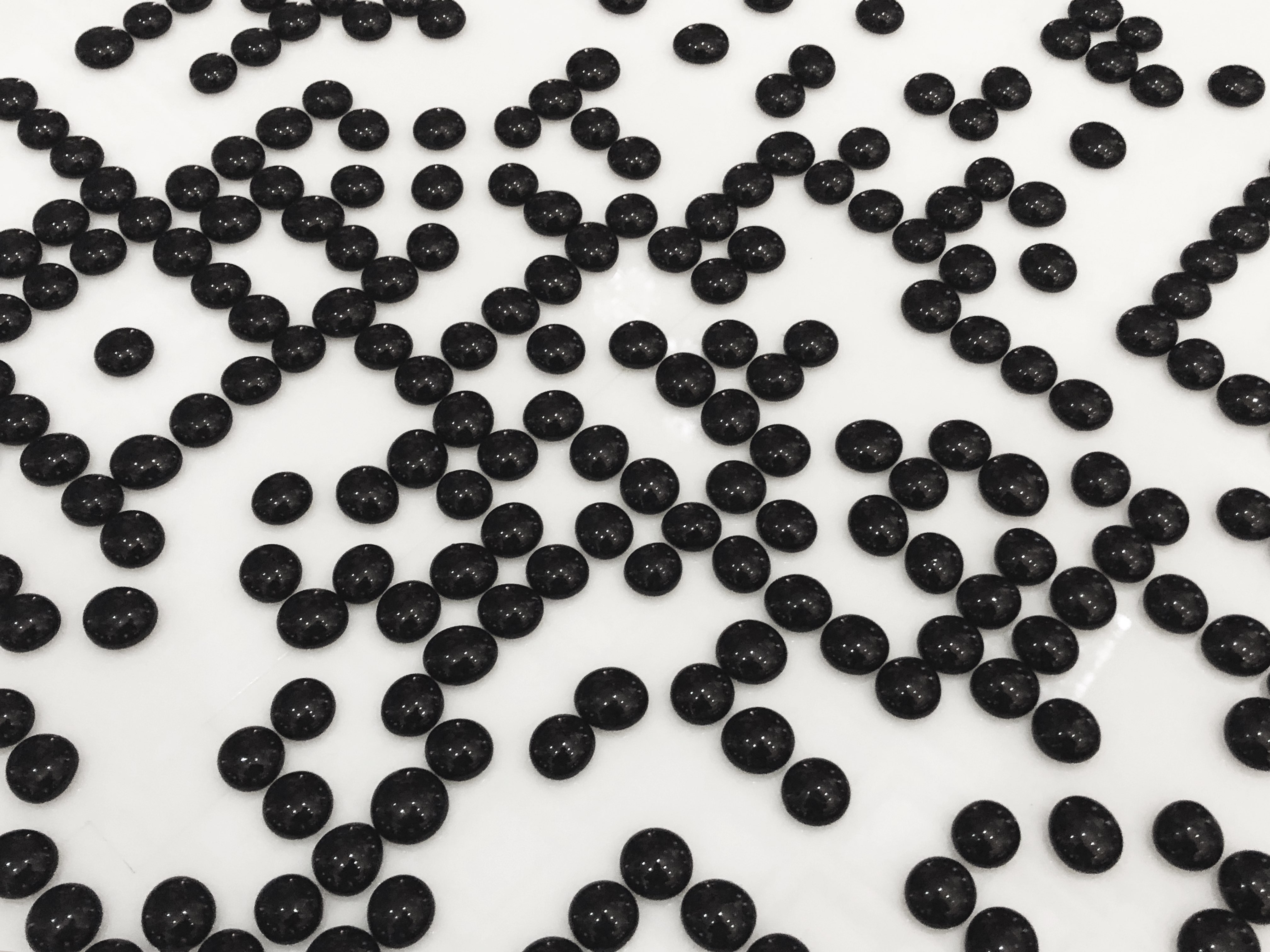
Credits
Piece produced during the 3rd edition of Majhi Art Internation Residency by Durjoy Bangladesh Foundation, curated by Kehkasha Sabah _ Steentjeskerk, Eindhoven (NL).
Video Sub-Titles: Nicola Cascarano
